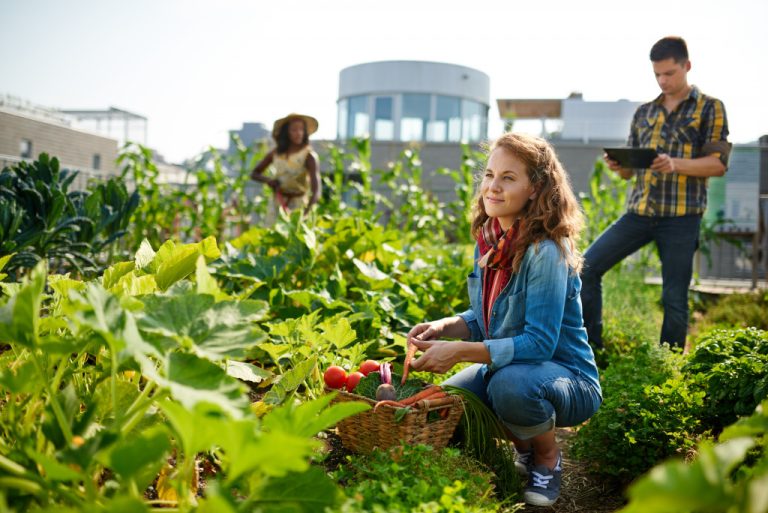- Home-based farming promotes self-sustainability and teaches about agriculture, starting with choosing easy-to-grow crops.
- Soil preparation is critical, involving soil testing, adding compost or fertilizer, and considering raised beds or containers.
- Custom pole buildings offer efficient storage and growth expansion with tailored features for optimal farming conditions.
- Regular watering, mulching, pest control, and harvesting are essential for a successful home farm, resulting in fresh produce for family and community use.
Starting a home-based farm is a great way to become more self-sustainable and teach your children about nature and agriculture. It can also be a fun and rewarding hobby for families to do together. If you are considering starting a family farm, here are some tips to help you get started. From choosing the right crops to harvesting your produce, this guide will provide you with all the information you need to start your own home-based farm.
Choosing Your Crops
One of the first things you will need to do is choose what crops you want to grow on your family farm. Depending on your climate and location, some crops may be easier to grow than others.
If you are just starting out, it is best to start small and focus on a few crops that are easy to grow in your area. Some popular crops for beginners include tomatoes, cucumbers, zucchini, peppers, and lettuce.
You can also consider planting herbs such as basil, parsley, and cilantro. Additionally, you can look into planting fruit trees such as apples, peaches, and pears.

Preparing Your Soil
Once you have decided what crops you want to grow, it is important to prepare your soil. Healthy soil is the foundation for a successful garden. Here are some tips:
Testing Your Soil
Soil testing is vital to understand its composition and nutrient levels. This test provides information about the soil’s pH level, nitrogen, phosphorus, and potassium content, which are essential for plant growth.
Soil testing kits are available at most garden centers or online. The test results will guide you in making the necessary amendments to enhance your soil’s fertility.
Adding Compost or Fertilizer
Compost and fertilizers play a crucial role in enriching the soil with nutrients. Compost, made from decayed organic materials, improves soil structure and moisture retention and provides slow-releasing nutrients.
On the other hand, fertilizers are concentrated sources of essential plant nutrients. They can be organic or inorganic, but it’s essential to follow the manufacturer’s instructions to avoid over-application, which could harm your crops.
Using Raised Beds or Containers
Raised beds or containers offer several advantages for your home-based farm. They provide better control over the soil condition, allow for easier pest management, and are excellent for those with limited space. Raised beds enhance the soil’s drainage and warmth, contributing to an extended growing season.
Containers can be moved to take full advantage of sun exposure and to shield plants from harsh weather conditions when necessary. Both options allow for high yields in smaller spaces.

Invest in a Custom Pole Building
An excellent option for those looking to expand their home-based farm is agricultural pole buildings. They provide a cost-effective and efficient way to increase storage space for farm equipment, supplies, or produce.
A custom pole building offers more flexibility in its design, allowing you to add features such as windows, insulated walls and ceilings, and ventilation systems. These features are essential for proper climate control and keeping your crops safe from pests.
Pole buildings also require minimal maintenance, making them an economical option in the long run. Whether you are a beginner or an experienced farmer, investing in an agricultural pole building can provide you with the extra space needed to grow your home-based farm.
Watering and Harvesting
Watering your garden is essential to ensuring your plants grow healthy and strong. Depending on your climate, you may need to water your plants every day or every few days. It is important to check the moisture level of your soil regularly and adjust your watering schedule accordingly. Here are other things to prioritize:
Mulching
Mulching is an essential part of gardening. It helps retain moisture in the soil, prevents weed growth, and keeps your plants cool. You can use organic mulch such as straw, leaves, bark chips, or compost.
Pest Control
Pest control is an important aspect of maintaining a healthy garden. You can use organic methods such as companion planting, beneficial insects, and homemade pest sprays to keep pests at bay. You can also consider using physical barriers such as netting or row covers to protect your plants from pests.
Enjoying the Fruits of Your Labor
After all your hard work, it is time to enjoy the fruits of your labor. You can incorporate your fresh produce into your family meals or even consider selling your excess produce to neighbors or at a local farmers market. Not only will you be providing healthy and fresh produce to your family and community, but you will also be helping to reduce your carbon footprint and become more self-sustainable.
Starting a home-based farm can be a fun and rewarding experience for families. By choosing the right crops, preparing your soil, watering and harvesting your produce, controlling pests, and enjoying the fruits of your labor, you can create a thriving family farm that benefits not only your family but also your community and the environment. With a little bit of hard work and some patience, you can create a sustainable, self-sufficient lifestyle that will benefit your family for years to come.











